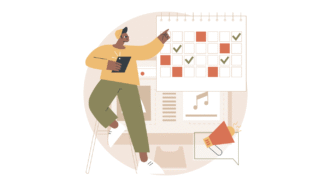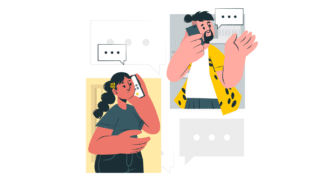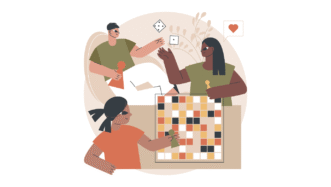LESSON OVERVIEW
The main objectives of this lesson are to:
- discuss life experiences;
- watch a video where children say if they have stolen something;
- work on the Present Perfect with ever and never;
With this lesson, students talk about their perspectives on life experiences, learn about bucket lists and discuss personal goals. They also watch a video about children’s experiences, practise the Present Perfect tense in affirmative, negative and question forms, and work in pairs to ask and answer questions about personal experiences.
WARM-UP AND VIDEO
This lesson where students practise the Present Perfect with ever and never starts with a warm-up. They look at photos and say what activities they show (e.g. driving a car, climbing a mountain, public speaking, etc.). After that, students finish sentences expressing different perspectives (e.g. I think the most stressful activity is…) with the activities in the photos. They also explain their choices. Next, students read the definition of a bucket list and try to guess what most people said in statements about personal goals and dreams (e.g. My creative goal is to…, I really hope that I will…, etc.). Then, they discuss questions about bucket lists and life experiences. Following that, students watch a video in which children say if they have stolen something. Before they do, they guess if most children say ‘yes’ or ‘no’. Afterwards, students watch the video and check their answers.
PRESENT PERFECT WITH EVER AND NEVER
At this point in the lesson, students read examples of the Present Perfect tense for life experiences. Then, they practise using ‘have’, identify suitable verbs, work on Present Perfect with ever and never, and match questions with short answers. After that, students fill in gaps with the correct form of verbs (e.g. lost, chatted, broken, etc.) to complete questions. Then, they answer the questions using short answers. Next, students use words to create negative sentences (e.g. I / miss a bus – I have never missed a bus.). Afterwards, they say if the sentences are true for them. Finally, students work in pairs. Each student gets a card. Student A asks if their partner has ever done the activities on their list but doesn’t use some words or phrases. Then, their partner asks them questions about the activities on their list.
HOMEWORK/REVISION
This lesson plan also includes an additional task that you can use as homework or revision. In the task, students create questions to ask people about their job experience. Then, they answer the questions with ‘No, I haven’t, but I have…’. The task is available in the teacher’s version of the worksheet. You can print it and hand it out to your students. It’s also included in the e-lesson plan.
WORKSHEETS
Subscribe to unlock these and many other Standalone lesson with the Premium plan
Subscribe











Me and my family have never… should be My family and I have never…
‘Me have.. might be used in colloquial English but I don’t think we should be teaching it in a grammar lesson.
You’re right! It’s used sometimes when speaking informally, but at this level it might lead to unnecessary confusion. Thanks for the comment! We’ve just updated the worksheets.
Awesome worksheet 🙂
We’re glad you enjoyed it 🙂